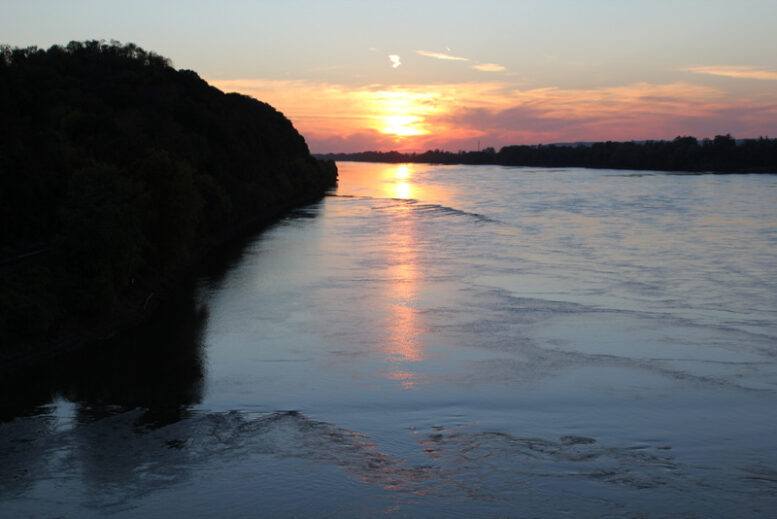Bellefontaine Cemetery holds stories that forged America. Good. Bad. Wild, like the story of Captain Bill Massie, the world’s greatest riverboat gambler. His unmarked grave belies his prowess. In the parlors of his riverboats, Captain Bill Massie could read the deadest poker face. His ability to count cards was the same skill he used to memorize every bend and snag on the treacherous Missouri River. From the wheelhouse he could read the signs on the water’s surface—ripples, colors, stream lines—and tell whether they hid snags or sawyers, planters or preachers, those sneaky hazards lurking beneath the waterline, closer to Hell, and he knew how they changed depending on weather. Other pilots paid Massie so they could follow his course, and sometimes he’d lead a string of six or eight riverboats. In sixty years of piloting, Massie sank only one boat, when the giant sternwheeler Montana hit the Wabash Bridge at Saint Charles.
After Massie retired from the river, luck dealt him a strange hand. On August 2, 1876, Massie sat at a poker table in Deadwood, South Dakota, with Wild Bill Hickok and two other players. On this day Hickok’s back wasn’t against the wall, as was his custom, and Massie apparently refused to change seats with Hickok not once but twice. Massie was winning and Hickok was losing. In Hickok’s last game, as Massie laid down his winning hand, an assassin’s bullet smashed into the back of Wild Bill’s head. The bullet exited through Hickok’s cheek and lodged in Massie’s wrist. Wild Bill’s fists still clutched his last poker hand with two pair—aces and eights—known to modern poker players as the dead man’s hand. Massie carried that bullet in his wrist for thirty-four years, and took it to his grave in Bellefontaine Cemetery.
Share this Post
